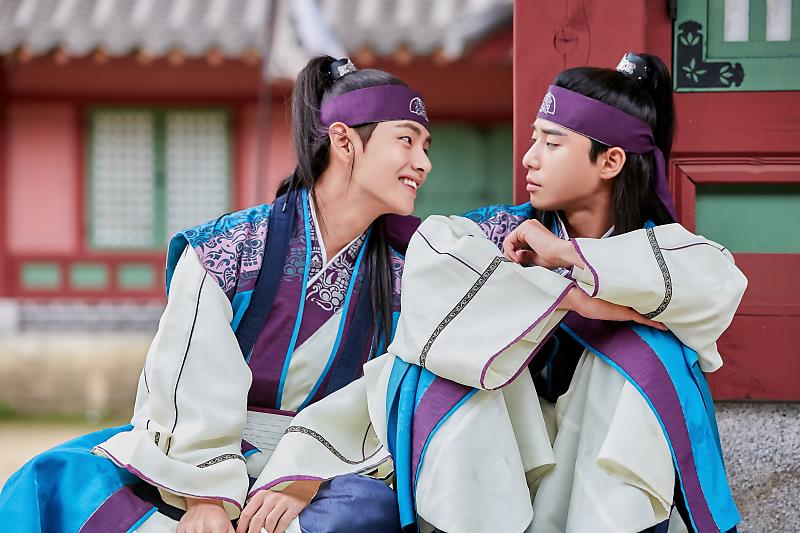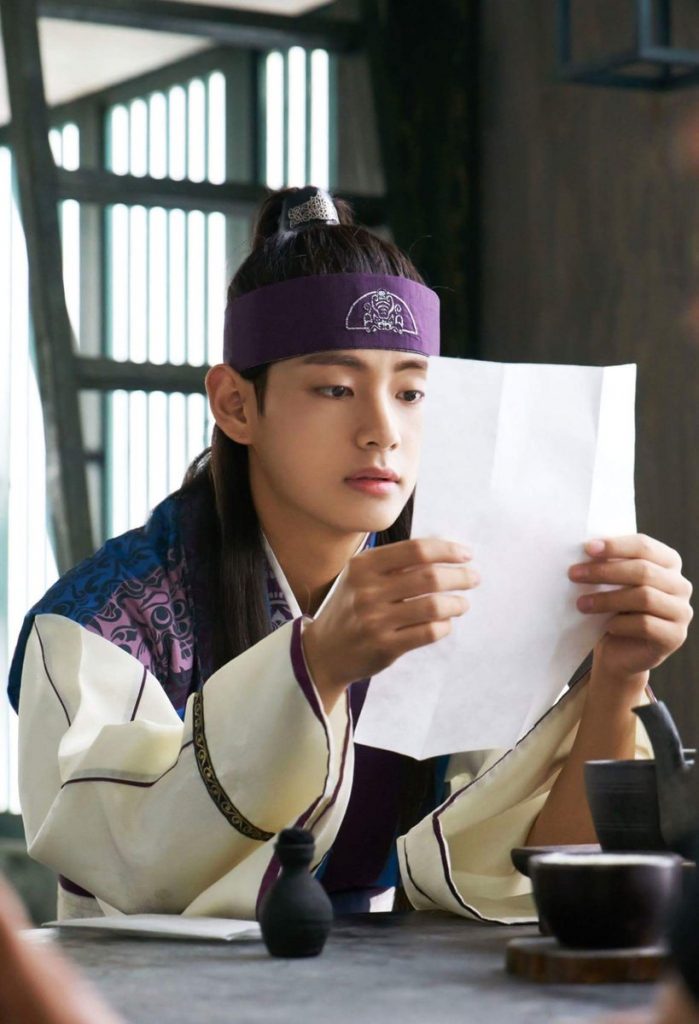 Hwarang may have finished its run, but our reviewers have words for the Silla-set sageuk. Here, Leesha, Qing, Gaya, and Sarah share their thoughts on the final four episodes of Hwarang, as well as their thoughts on the show overall.
Hwarang may have finished its run, but our reviewers have words for the Silla-set sageuk. Here, Leesha, Qing, Gaya, and Sarah share their thoughts on the final four episodes of Hwarang, as well as their thoughts on the show overall.
Leesha: Well, it took over half the series but we finally got the political intrigue and plot we were dying for while the writers were making us suffer through that love triangle. However, it seems as though once Baekje came into play things went a little too fast. Some of the relationship dynamics changed so quickly that it didn’t seem plausible, for example how Master Suk (Kim Jung-joo) went from this force of nature beating the daylights out of Dan-se (Kim hyun-joon), to this defeated old man getting on his knees so Master Young-shil (Kim Chang-wan)can step up on his horse. Yes, it’s hinted that the house of Suk has fallen, but the fall happened too quickly. So did Han-sung’s (BTS‘ V) death, in my opinion. We were just seeing the playfulness and hyung-dongsaeng relationship between him and Sun-woo and suddenly he’s taken out of the picture in the worst possible way.
Ban-ryu (Do Ji-han) was another change I didn’t understand. He was ready to betray them in Baekje and he brought the assassins into the Hwarang. But why? Before then he was content with his new relationships with Su-ho (Shinee‘s Minho) and Soo-yeon (Lee Da-in). Were Kang Sung’s (Jang Se-hyun) words truly so horrible to him that he had to betray his friends? His ultimate redemption didn’t feel quite that earned, but I was happy that he found a way to be happy without his father or step-father.
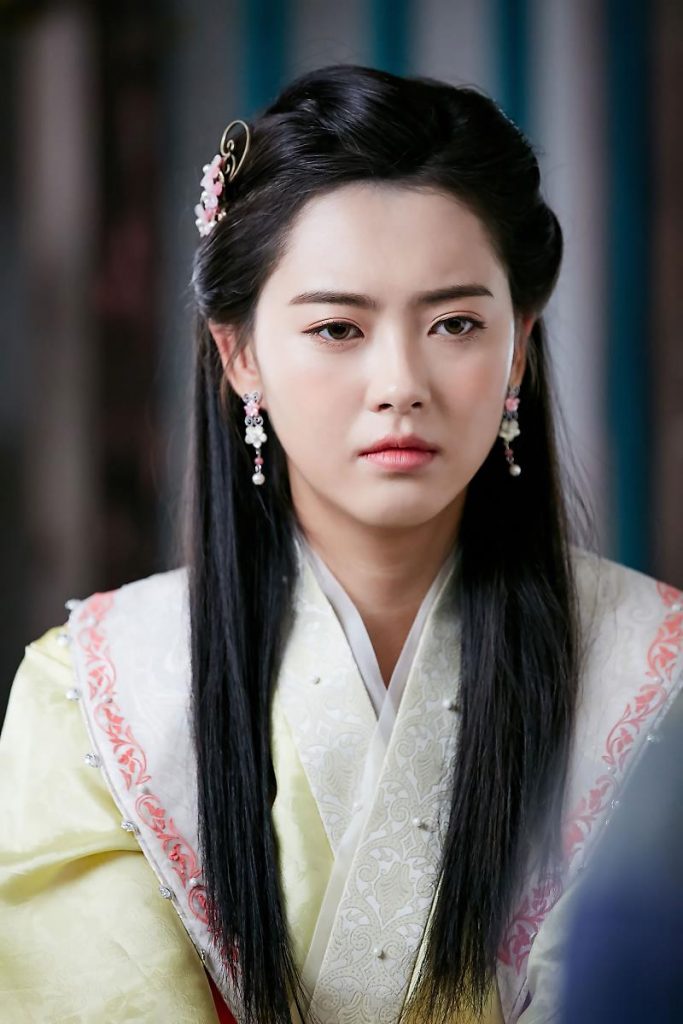 Ah-ro (Go Ara) still showed no initiative, even when she knows she’s being used to manipulate Sun-woo. Other than a few “impassioned” (I use the word lightly) speeches, she has done nothing but torture both Sun-woo (Park Seo-joon) and Ji-dwi (Park Hyung-sik). Even with the title of Wonhwa (though it was supposed to lead to her death, it was still a significant role) she sat around playing games with the help. How is it that she had absolutely nothing to do but be a catalyst for men who seemed pretty capable without her? It’s even worse when comparing her to the princess, because Sookmyung (Seo Ye-ji) was capable, blunt, and could handle herself while still under duress, instead of waiting to be saved or crying.
Ah-ro (Go Ara) still showed no initiative, even when she knows she’s being used to manipulate Sun-woo. Other than a few “impassioned” (I use the word lightly) speeches, she has done nothing but torture both Sun-woo (Park Seo-joon) and Ji-dwi (Park Hyung-sik). Even with the title of Wonhwa (though it was supposed to lead to her death, it was still a significant role) she sat around playing games with the help. How is it that she had absolutely nothing to do but be a catalyst for men who seemed pretty capable without her? It’s even worse when comparing her to the princess, because Sookmyung (Seo Ye-ji) was capable, blunt, and could handle herself while still under duress, instead of waiting to be saved or crying.
Speaking of this point, Ji-dwi, in all honesty, did not deserve that throne. His whole life he’s lived in hiding and in his mother’s shadow. He’s gotten to this age and the only thing that will motivate him to take or abandon the throne is some girl he first saw on the street? I just don’t buy him being so in love with her that he’d take so many risks for her sake, especially when she doesn’t and never liked him back!
Honestly, the politics were the best part. Queen Jiso’s (Kim Ji-soo) backstory and her ruthless made her death a disappointment, but at least she was an active character. Both she and Master Young-shil were driven and willing to do anything to reach their goals and I could respect that.
Ultimately, my feelings on Hwarang are simple. The show needed more balance between plot and character, and even then more balance between characters. What was missing was more of a sense of purpose, and it seemed that even the biggest point–the real Sun-woo’s death — was forgotten. Overall, I wanted more depth that the drama had the potential to have, yet didn’t tap into.
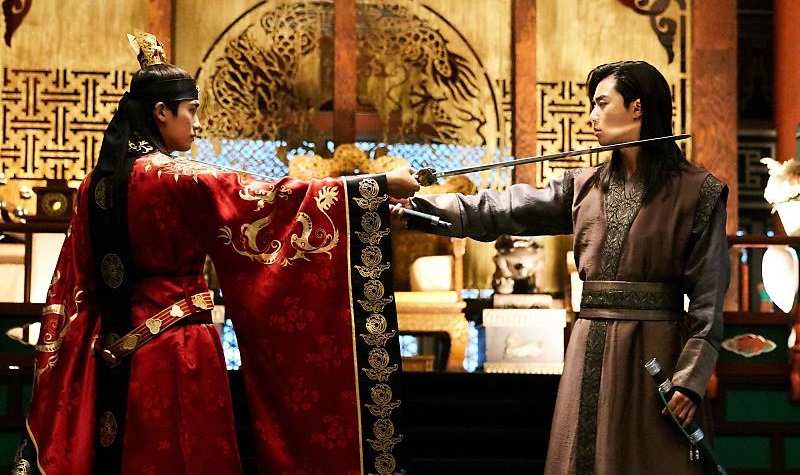
Qing: Despite the faster pace in this quarter, the plot was really quite minimal, leading up to this final battle for the throne the whole time. It’s ironic that the script has Master Wi-hwa (Sung Dong-il) telling the Hwarang not to let themselves be pieces on someone else’s chessboard, when so many of the characters, like Ah-ro and Han-sung, were turned into convenient pawns of this thinly stretched plot itself. The writing is so transparent: Han-sung’s death and Ah-ro’s constantly imperiled state were just plot points to make the viewer believe that Sun-woo, who never cared for the throne, would somehow swing to the other side and pit himself against Ji-dwi, in order to make the twist more surprising.
The last episode was satisfying, but also sad because it reminded me of everything I loved about the drama initially—the comic moments like Ban-ryu’s not-so-surreptitious attempt to search up an escape route when Master Kim Seub (Ko In-beom) walks in on him and Soo-yeon, or Pa-oh’s ( face crumpling with pride at Ji-dwi’s crowning ceremony. The weightier scenes were captivating as well, like Ji-dwi dissolving into tears when he discovers Jiso has been drinking poisoned tea. The episode even dredged up a sliver of memory that there was something I liked about Ah-ro and Sun-woo’s romance, which was when they teased each other.
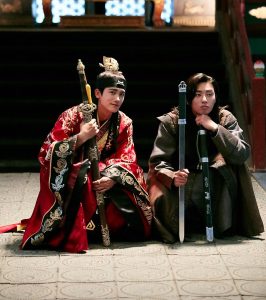 And oh, the promise of the bromance that never was! The scene in which Sun-woo turns the tables on Master Young-shil to pledge his loyalty to Ji-dwi could have been so much more satisfying if the drama had focused on what it promised to: the story of the Hwarang’s growth and their relationships with each other. The writer was never able to break away from her idea of what a drama should be, and as a result neglected the potential of the story she actually had.
And oh, the promise of the bromance that never was! The scene in which Sun-woo turns the tables on Master Young-shil to pledge his loyalty to Ji-dwi could have been so much more satisfying if the drama had focused on what it promised to: the story of the Hwarang’s growth and their relationships with each other. The writer was never able to break away from her idea of what a drama should be, and as a result neglected the potential of the story she actually had.
This pitfall is most evident in the over-development of a most unnecessary love square. The writer never seemed to realise that her characters’ main motivations didn’t have to arise out of romantic interests. It’s not that the characters didn’t need romance at all, but the love lines could have been better integrated with character growth. There were also a lot of tropes brought in without the good setup necessary for them to feel convincing, like noble idiocy (Sun-woo leaping to take an arrow for Ah-ro, Ah-ro doing the same).
And it’s not all on the writer, too; Hwarang may be the writer’s first full-length drama, but it’s helmed by an experienced director who could have distributed the plot’s focus better. It’s not that the characters and relationships never developed, but the viewer was often presented with a scenario that jumped from point A to B, with many episodes in between and no sense of the processes that resulted in the changes.
Despite all the lost potential, though, Hwarang has left me with a lot of small wonderful moments that will stay with me for a long time. Low ratings notwithstanding, it was also a sufficiently high-profile project that I hope will help the newer actors (V and Lee Da-in) or less-known but outstanding actors, like Do Ji-han, secure more solid projects in future.
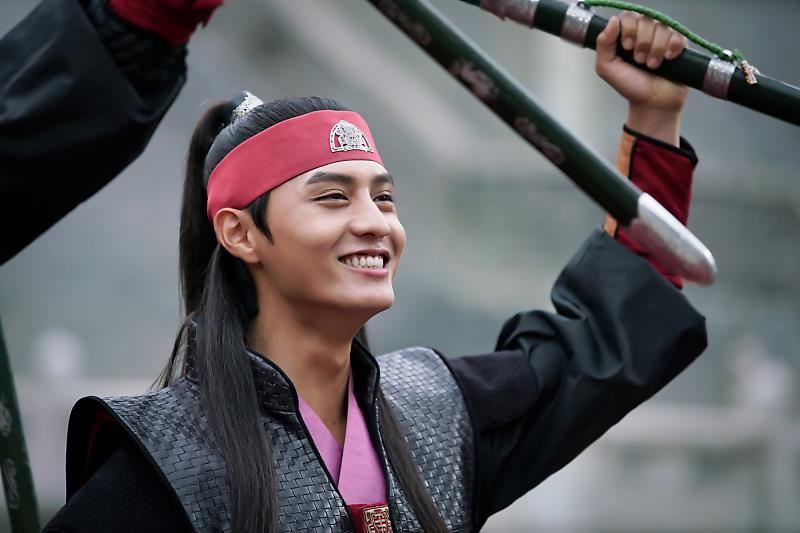
Gaya: That’s a really good point you make about Ah-ro, Leesha. While I do think she was a small fish in a big pond, she has been shown capable of handling herself, and could have eventually done more than become a human shield. I know I’ve complained about Sun-woo’s lack of communication in his worry over her and how that may have affected Ah-ro, but I can see how she could have stepped up to the plate as well. For all my talk of Ah-ro being useful, this romance ultimately rendered her useless, being literally locked away so that Sun-woo can do what he needs to without worrying about her safety.
Like with a lot of things in this drama, they had the ingredients to write an interesting solution for this dilemma, and on how to progress a relationship where one is constantly used to influence the other’s actions; but the show didn’t take the time to explore that, which meant it had to take the easy way out at the last minute. I had put a lot of faith in the show, believing that it would come together in the final episodes; and while it did reach its destination, the journey itself was a slow, and ultimately bumpy, ride. I’m really glad the ending was good, but it could have definitely been better.
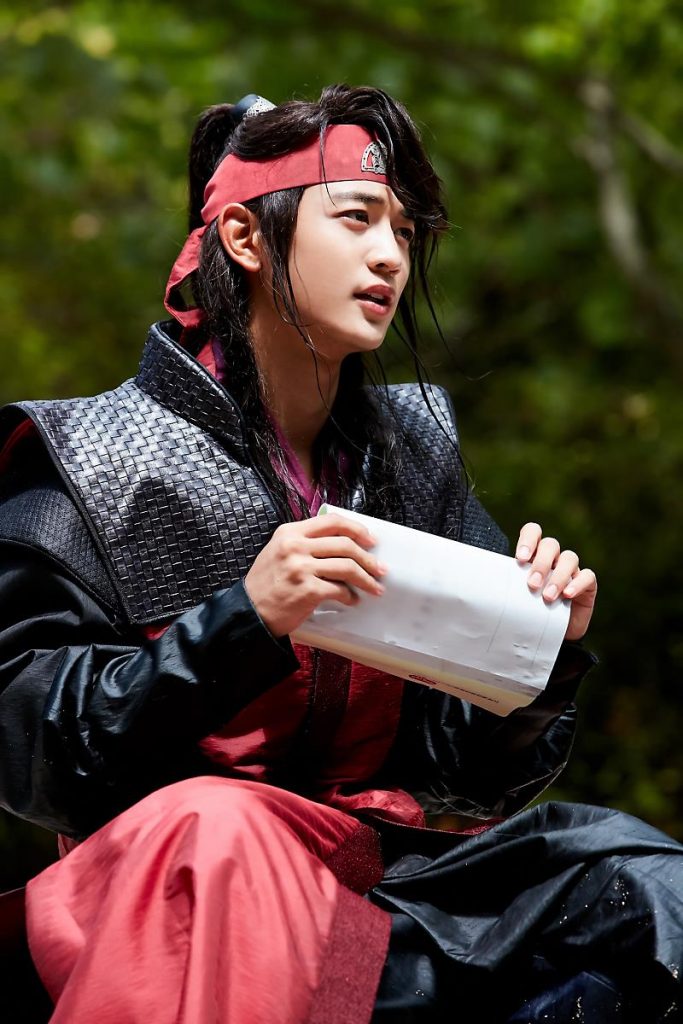 Meanwhile, Ban-ryu ended up being the character to watch. His positive transformation was very well handled, especially by avoiding the cliches of changing for romantic love. His friendship with Su-ho was beautiful and I greatly appreciate that Ban-ryu was able to choose good over evil on his own terms. He did it not only because it was the right thing to do, but because he wanted to do the right thing.
Meanwhile, Ban-ryu ended up being the character to watch. His positive transformation was very well handled, especially by avoiding the cliches of changing for romantic love. His friendship with Su-ho was beautiful and I greatly appreciate that Ban-ryu was able to choose good over evil on his own terms. He did it not only because it was the right thing to do, but because he wanted to do the right thing.
It’s just a shame that his change of heart was for a plot point that ultimately didn’t matter. Like, I’m really happy that the villagers were cured of whatever deadly plague that is apparently cured by aniseed, but it didn’t really matter in the grand scheme of things, except to make our good guys look good, and our bad guys look bad. We already know who’s who, so this plot ploint was ultimately unnecessary. The elements of Ban-ryu’s change of heart, and even the precursor to the poison plot point, could have been incorporated into the main narrative surrounding Ji-dwi’s acsension to the throne. It’s a testament to how mishandled that poison thing was that, even with the foreshadowing though Ji-gong (Choi Won-young), we were all still like “whaaaaaat” when it was confirmed.
I comepletely agree with Qing that Hwarang’s biggest fault lies in the mismatch of plot and character development — we spent so much time on people who barely mattered in the end (hi, Yeo-wool (Cho Yoon-woo), Dan-se, Han-sung, et al), while those who did we weren’t able to fully decipher (Queen Jiso, Sun-woo). Hwarang had the right elements and the right idea, but its treatment was too slapdash to deliver anything holistically satisfying.
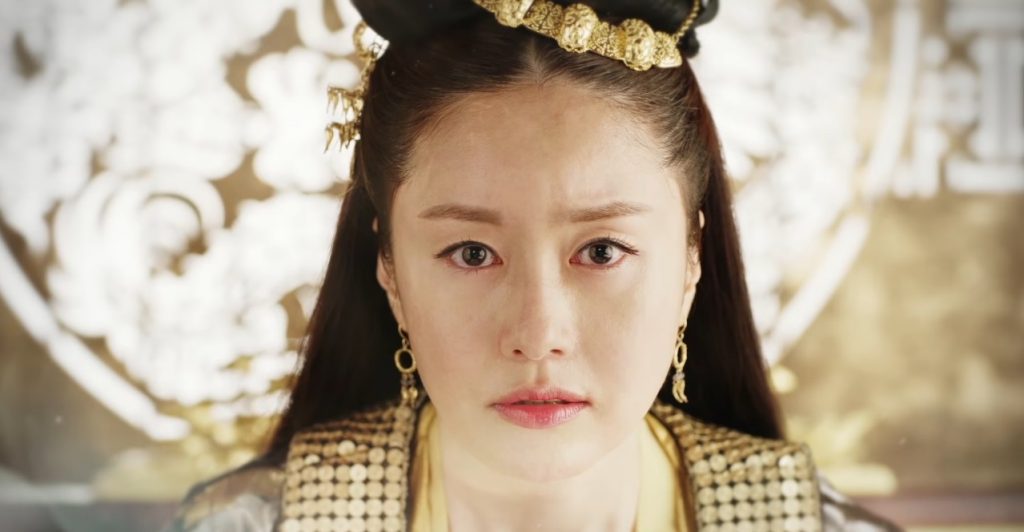
Sarah: Ultimately my feeling after all is said and done is that Hwarang had so much untapped potential. From the very first episode, which started out much more light-hearted, even through the very last, the one thing that stood out was how many possibilities and questions were opened every second, for good or bad. There were so many different directions the drama could have gone in, so many plot points they could have elaborated on, and ultimately so many dropped plot threads.
The character development we were finally given in the end wasn’t fully thought-out, like the strange, while ultimately pleasing, flip-flopping of Ban-ryu. There were many characters who were introduced with such pizazz and never fully realized, like Su-ho or the Princess Sookmyung. And some were even done away with in a cowardly, easy way, as in the case of Han-sung, and even Queen Jiso in the end.
Which brings me to the plot point that confused me the most. Jiso spent the entire series acting like a jealous lover, claiming she was protecting the throne for her son, but not allowing him anywhere near it, and she is suddenly revealed to have been complicit in her own poisoning and to have allowed herself to slowly waste away? What would have happened had she died before handing the throne over. I can’t believe she would not have thought that out and prepared her son, despite her reluctance, for the inevitable.
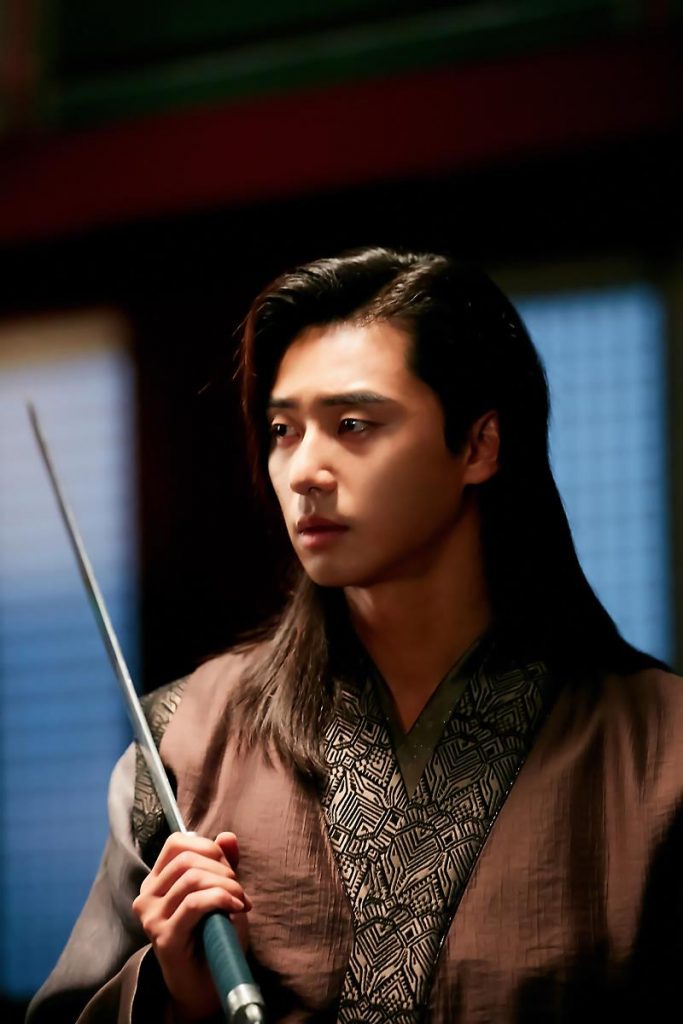 I was also disappointed, as Leesha and Gaya already mentioned, in the treatment of Ah-ro in the end. She had great potential as more than just a love interest, and yet in the finale she was literally locked in a room and was not involved for the entire final battle. Even the resolution of the love triangle was half-hearted. Sure, it was satisfying on one side, but how is that there is absolutely no resolution between Ah-ro and Ji-dwi after all that.
I was also disappointed, as Leesha and Gaya already mentioned, in the treatment of Ah-ro in the end. She had great potential as more than just a love interest, and yet in the finale she was literally locked in a room and was not involved for the entire final battle. Even the resolution of the love triangle was half-hearted. Sure, it was satisfying on one side, but how is that there is absolutely no resolution between Ah-ro and Ji-dwi after all that.
I feel we are in agreement that, while Hwarang was enjoyable and ultimately wrapped up satisfactorily, the mismatch between the character development and plot, and the unguided nature of the plot, made the show significantly more annoying than it should have been. Especially being that it was pre-produced and even postponed from its original air date by a number of months, it really deserved to be more airtight. I think it’s unlikely we will get a sequel after such a lackluster performance, but I do hope that the topic of the Hwarang doesn’t get forgotten again. There is still infinite potential there, bromance and otherwise.
(KBS)
